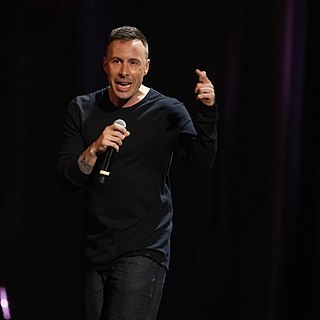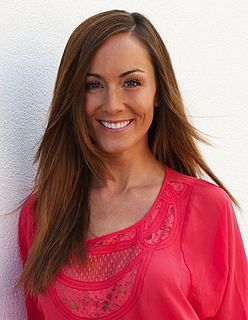A Quote by Dov Davidoff
The Middle East is America's 'champagne room'. No matter how much you spend, you will still never get what you want.
Related Quotes
I think that competition will exist even if we discover more oil. We're never going to know how much we have, or how long will it last. You are always going to want to have diversity of supply. I think the Middle East will remain a region of competition, of global competition, fighting for a long time.
Historically, the argument is we stole the country from the Indians. America stole the labor of African Americans for over 200 years under slavery. America took half of Mexico by force in the Mexican War. American foreign policy, the progressives say it's based on theft. Why? Because look, America is very active in the Middle East. Why? The Middle East has oil. Notice that America doesn't get involved in Haiti or Rwanda because they don't have any oil.
When the pop culture is littered with TV shows that portray men as rapists, brutes and predators and women as the never ending victims no matter how much power they acquire, no matter how much the decks are stacked in their favor politically, they're still portrayed as weak and victims and not fairly paid and so forth. And all men want to do is get along.
It don't matter how many rallies or protests I go to. It don't matter how many songs I make spreading positivity or sending a message. It don't matter how much time I spend within the community. It don't matter that I have a black wife. Being a white person in America, you represent being a benefactor of slavery of what this country was built on.
I think the public is very reluctant to get involved in more foreign wars, especially in the Middle East. And they understand, implicitly, that we go to war in the Middle East because of oil. And if we don't want to go to war in the Middle East, then we have to do something about the oil problem. And I think that view is gaining ground in the U.S.
I think President Barack Obama came to office with quite fundamental understandings in his mind about what's possible and what's not possible in the Middle East. The first, I would say, revolutionary breakthrough that he introduced is that the Middle East doesn't matter to American geostrategy as much as we think.
In the Middle East, America has spent as of four weeks ago $6 trillion. Think of it. And, by the way, the Middle East is in what - I mean, it's not even close - it's in much worse shape than it was 15 years ago. If our Presidents would have gone to the beach for 15 years, we would be in much better shape than we are right now, that I can tell you.





























